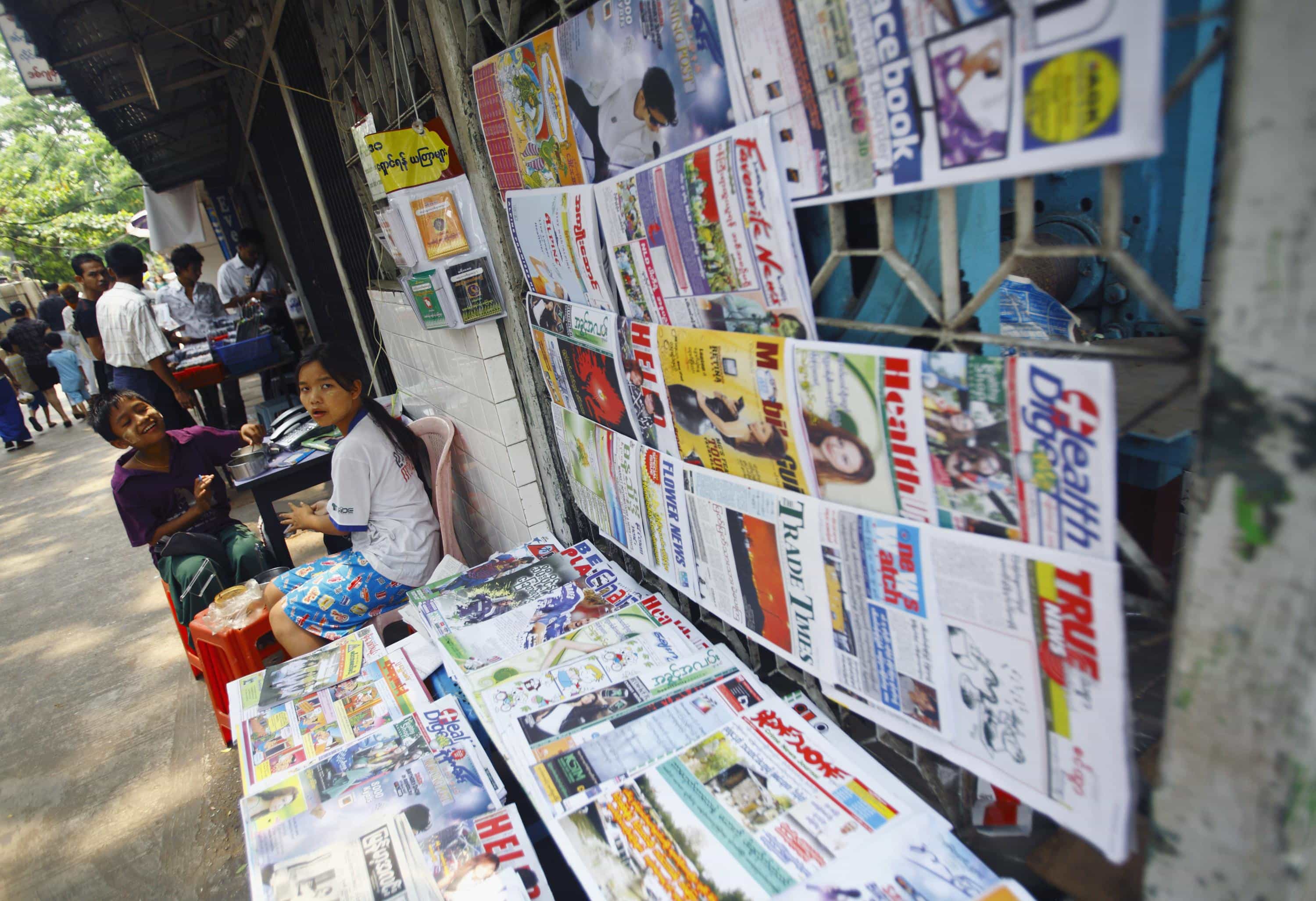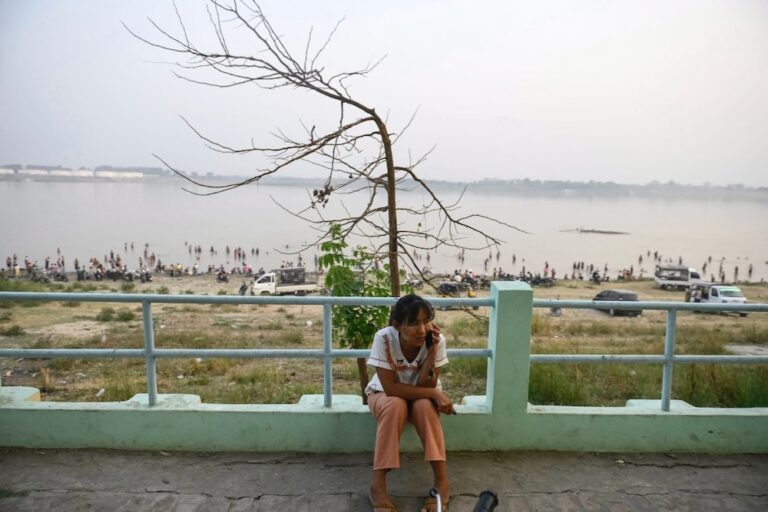The recent arrest of five journalists from "Unity Weekly" journal over reports of an alleged chemical weapons factory is a grim reminder to the media community in Burma that the recent relaxation of media freedoms in the country is still very limited.
The recent arrest of five journalists from Unity Weekly journal over reports of an alleged chemical weapons factory is a grim reminder to the media community in Burma that the recent relaxation of media freedoms in the country is still very limited.
There has not been any official response to the controversial report apart from the stunning swift and decisive response of the police special branch to arrest the reporters and the CEO of Unity Weekly and the immediate pullout of the issue containing the report.
According to an account by The Irrawaddy, Lu Maw Naing, a Unity reporter based in Pauk Township in Magway Division was arrested on Friday 31 January 2014, and Tint San, Unity journal CEO, together with reporters Yarzar Oo, Paing Thet Kyaw and Sithu Soe were detained the following day.
The five journalists were arrested for the news report “A secret chemical weapon factory of the former generals, Chinese technicians and the commander-in-chief at Pauk Township”, which included photographs of the supposed chemical weapons plan. The report appeared in the front page of the 25 January edition of Unity Weekly.
The journalists were held at an undisclosed location, until a report from The Voice journal said that the five are being held in the notorious Insein prison while awaiting trial on national security charges for leaking state secrets.
The charges are non-bailable, and carry a possible death sentence.
A joint statement of the country’s three main journalist groups, with the writers association, has questioned the “appropriateness” of the state response of a lawsuit against the journalists. They also called on the Myanmar Press Council (Interim) to mediate on behalf of the detained journalists.
The handling of the incident “without due legal process reminds us of the practice of the former military regime”, said the joint statement of the Myanmar Journalist Union (MJU), Myanmar Journalist Association (MJA), Myanmar Journalist Network (MJN) and the PEN Myanmar.
Southeast Asian Press Alliance (SEAPA) executive director Gayathry Venkiteswaran, also condemned the arrest, saying that “the incident puts a serious dent on the illusion of press freedom that the Myanmar government seeks to project.”
“The arrest of the journalists and censorship of Unity Weekly’s 25 January issue also illustrates the urgent need for concrete guarantees to protect the work of journalists,” she added, noting that the promised legislation has floundered since its announcement in 2012.
“The credibility of the government, which has been carefully built up since 2011 is seriously at stake because of this incident, which appears more like a cover-up of the report,” Gayathry added.
There has been no independent confirmation of the Unity Weekly news report on the existence of a chemical weapons factory in Pauk township in the Magway division, but The Irrawaddy report quoted Tint San saying”we have concrete evidence of the plant’s existence.
The existence of such kinds of weapons plant in Burma can seriously dent the international credibility of the government that has transitioned towards democracy over the last two years. Burma is one of three remaining states which have not ratified the 1925 convention that has outlawed the use and manufacture of chemical weapons.
“We urge the government to release the imprisoned journalists, drop the charges, and come clean about the report,” SEAPA’s executive director said.



